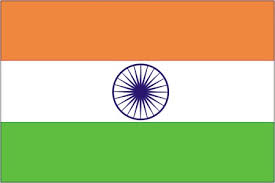UNCOPUOS
The United Nations Committee on Peaceful Uses of Outer Space (COPUOS) was established on December 13 1958, as an ad hoc intergovernmental Committee by the UN General Assembly Resolution shortly after the launch of the first artificial satellite Sputnik I in 1957. The Committee had 18 founding members including India. In 1959, the UNGA established the Committee as a permanent body and reaffirmed its mandate.
In 1961, the General Assembly, considering that the United Nations should provide a focal point for international cooperation in the peaceful exploration and use of outer space, requested the Committee, in cooperation with the Secretary-General and making full use of the functions and resources of the Secretariat;
- to maintain close contact with governmental and non-governmental organizations concerned with outer space matters;
- to provide for the exchange of such information relating to outer space activities as Governments may supply on a voluntary basis, supplementing, but not duplicating, existing technical and scientific exchanges; and
- to assist in the study of measures for the promotion of international cooperation in outer space activities.
The UN resolution also requested the Secretary-General to maintain a Public Registry based on the information supplied by States launching objects into orbit or beyond. These terms of reference have since provided the general guidance for the activities of the Committee in promoting international cooperation in the peaceful uses and exploration of outer space.
The membership of COPUOS has grown to the present 95 members making it one of the largest Committees in the United Nations. In addition to States, a number of International organizations, including both Intergovernmental and non-governmental organizations, have observer status with COPUOS and its two Subcommittees.
Governance
The Committee comprises the plenary committee, which meets once a year in Vienna , and two subcommittees: the Scientific and Technical Subcommittee (STSC) and the Legal Subcommittee. The Committee and its two Subcommittees meet annually to consider questions put before them by the General Assembly, reports submitted to them and issues raised by the Member States. The Committee and the Subcommittees, working on the basis of consensus, make recommendations to the General Assembly (in particular its fourth Committee) and publish annual reports providing detailed information on their activities.
Office for Outer Space Affairs
The secretariat of the COPUOS is provided by the United Nations Office for Outer Space Affairs (UNOOSA), whose present Director is Ms. Simonetta Di Pippo. It is a part of the Secretariat General of the United Nations. The Office comprises two main divisions:
- A division in charge of practical applications of space technology (Space Applications Section)
- A division responsible for international cooperation and for the Committee’s activities (Committee Services and Research Section).
India and UNCOPUOS
India is a founding member of the UNCOPUOS and has made significant contributions to its work. Dr. Vikram K. Sarabhai, the Father of Indian Space Programme, was the Vice-President and Scientific Chairman of the first United Nations Conference on the Exploration and Peaceful Uses of Outer Space (UNISPACE-I) in 1968. Professor Yashpal was the Secretary-General of UNISPACE-II in 1982, followed by Professor U.R. Rao as President of UNISPACE-III in 1999 and Chairman of UNCOPUOS from 1997-1999. In 2021, India was unanimously elected as the Chair of the new Working Group on the Long-term Sustainability of Outer Space Activities.
The Indian delegation proactively participates in the Committee proceedings through technical presentations, highlighting the progress of Indian space activities, and also in proposing topics for discussion and policy decisions keeping in mind the interests of India and other developing countries. India has also continued its efforts on capacity building front through UN Centre for Space Science and Technology Education in Asia and the Pacific & Indian Institute of Remote Sensing, bringing the total number of beneficiaries of various training programmes to more than 2800 officials from 109 countries. In fulfillment of India’s commitment made at UNISPACE+50, India has offered UNNATI training on nanosatellite building for 60 officials from 33 nations.















